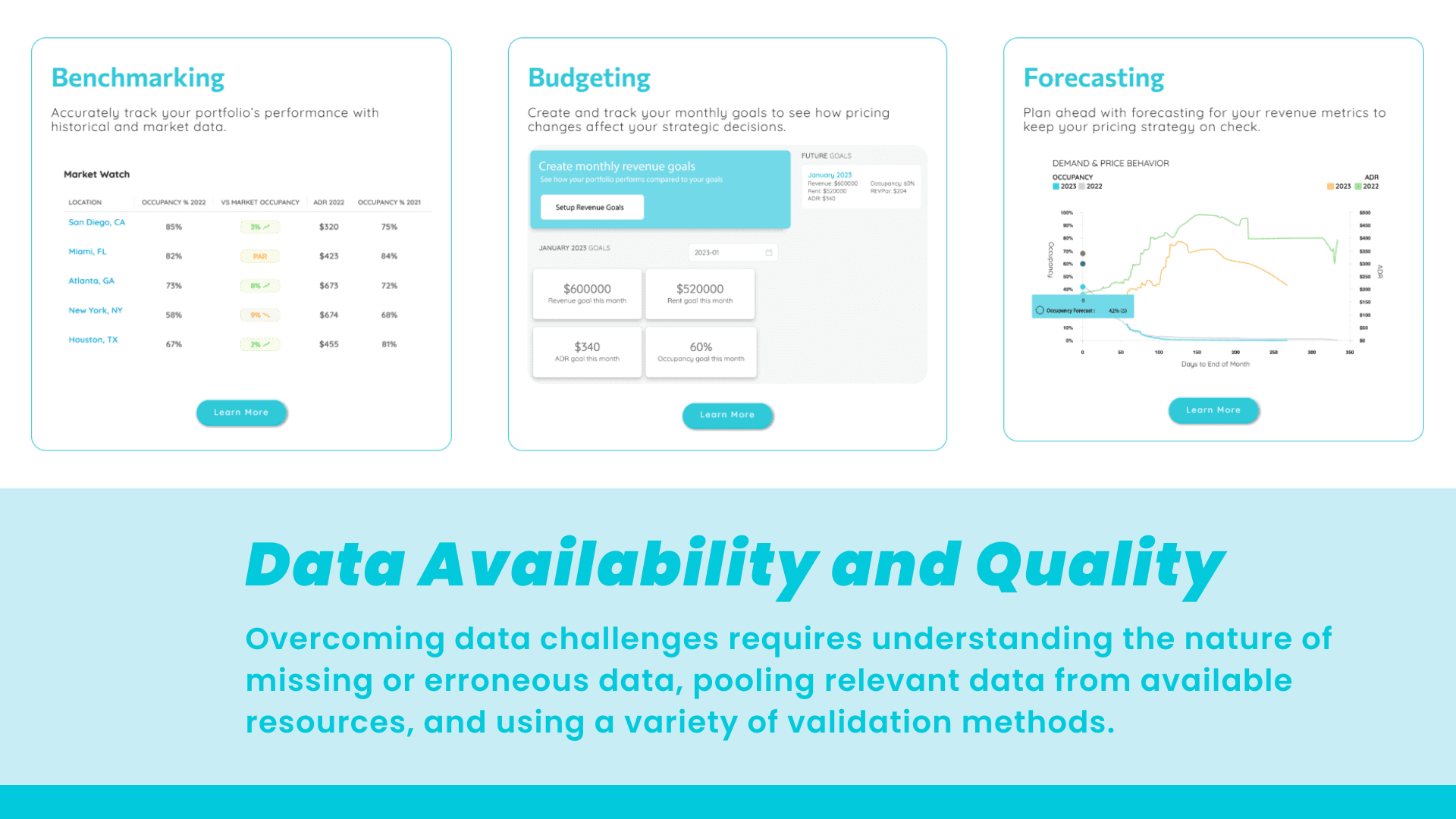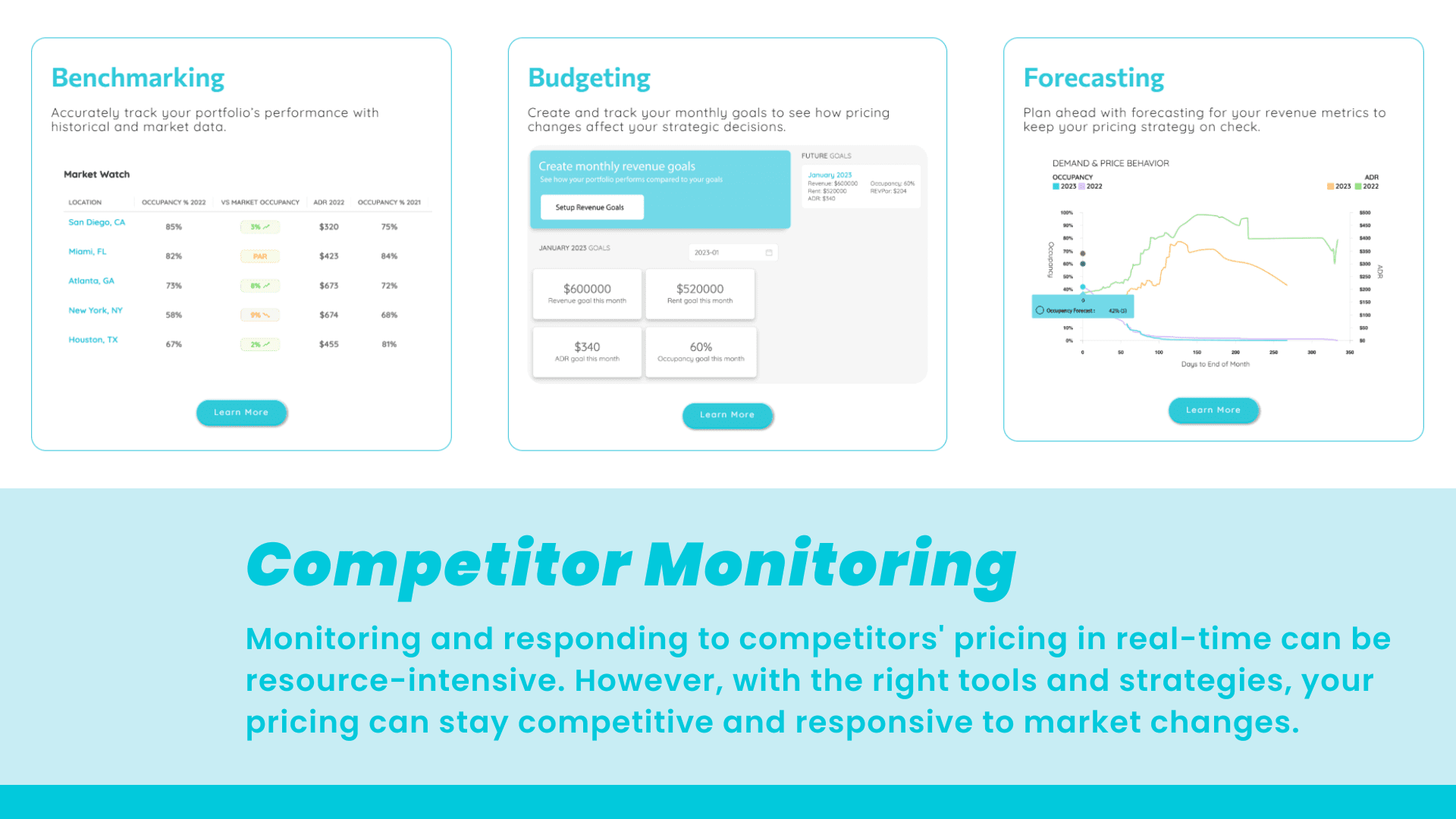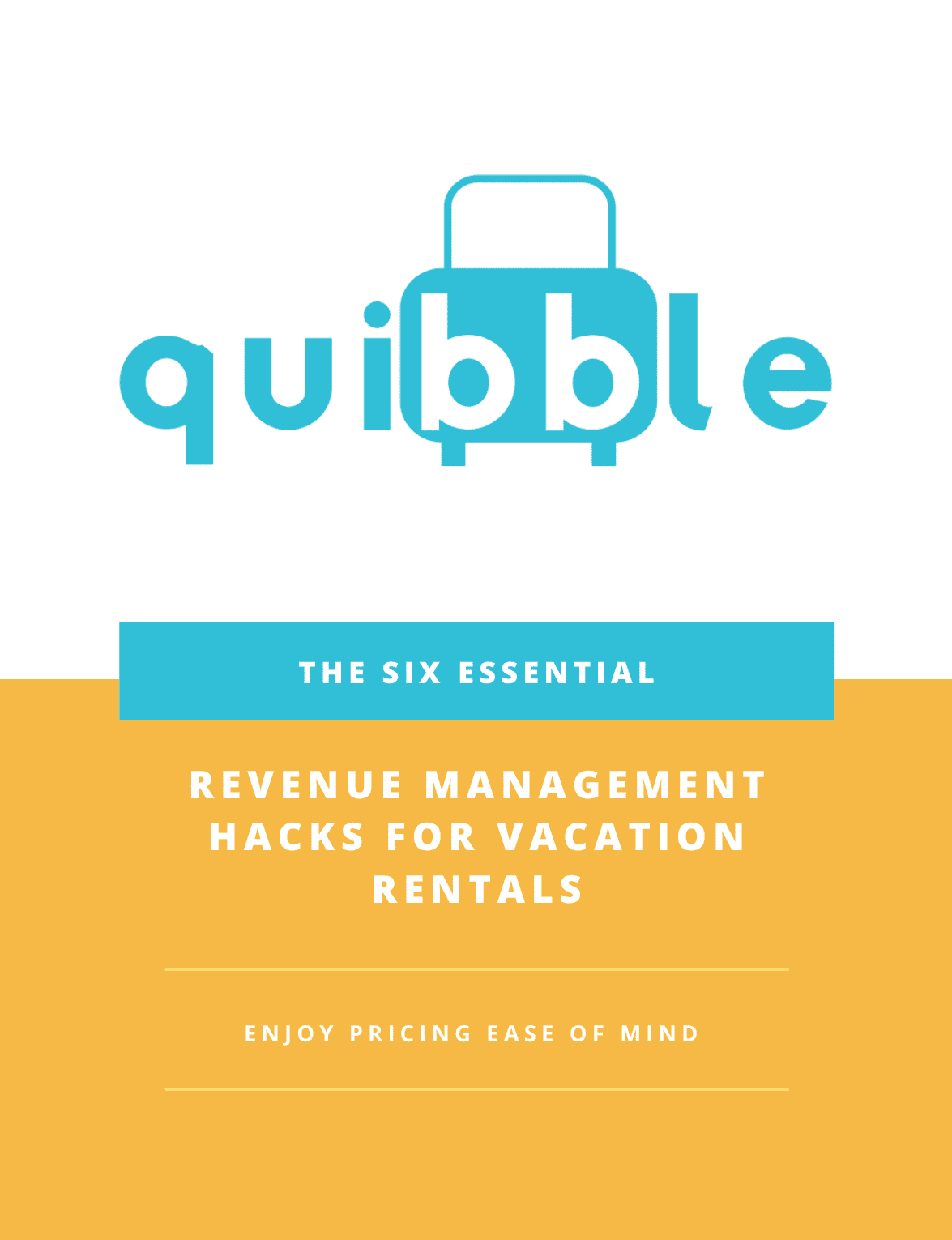What is forecasting?
Quite simply, forecasting is determining what is going to happen in the future. Forecasts are useful to predict changes in stock prices, weather, or how many nights somebody will book your property in the coming months. Different industries use different methods to achieve their forecasts, and revenue management forecasting has used a method called time-series for over 40 years (e.g., airlines and hotels). This type of forecasting looks exclusively at trends that have happened in the past and try to map them to future events.
There are distinct advantages and disadvantages to this type of forecasting. The significant advantage of using your historical data to build a forecast is that the data is highly reliable. You can have a high degree of confidence that the method will keep your prices moving towards the theoretical optimal price. The major disadvantage is when the forecast can learn about new trends, react to special events, update seasonality can be too slow. Other methods have been tested to forecast demand in the airline space, but none has replaced time series forecasting.
Why do we forecast?
For managers, the future forecast helps them make decisions today to better shape the forthcoming event’s outcome. One of the most critical things Property Managers and Short-Term Rental (STR’s) owners need to know is if someone will book their units. If this October demand is going to be down by 25% compared to last year, when will the manager know about it? A good forecast could let you know several months ahead of time. This allows the manager to adjust their pricing, marketing, and promotions to try to mitigate the lost revenue.
What if forecasting…
In demand forecasting for perishable goods (like hotel rooms and short-term rentals), revenue managers often do not have a dataset that can accurately describe all possible pricing and demand scenarios. For this reason, statistical processes have been devised to estimate what would have happened if certain things had been different. For example, imagine a Property Manager sets a price for one of their properties at $500 per night with a 3-night minimum stay for the upcoming weekend. The unit ends up vacant for that weekend, and the property owner does not earn any revenue. What would have happened if they had charged $450 with a 2-night minimum? It is impossible to say with certainty, but at Quibble, we use Machine Learning algorithms to estimate what would have happened at different price points and restrictions. By having an estimate of what we think would have occurred, the system is much better placed to price the next weekend.
The Unique Challenge in Short Term Rentals
For the Short Term Rental (STR) market, forecasting is both incredibly challenging and incredibly important. The difference in the application of demand forecasting to the STR market is that each unit/property is independent. Forecasting a 300-room hotel or 180 seat airplane leaves some margin for error. The forecast for next Saturday could be off by 10% in the 300-room hotel, and that would be +/-30 rooms that the forecast missed. If you forecast and sell one rental property independently, it is either 100% booked or 0% booked. There is very little forgiveness in this structure.
Solutions
Most of the investment in the STR market has focused on Pricing and Dynamic Pricing. Being able to dynamically price properties based on rules applications may achieve 80%-85% of the possible gains that Revenue Management can achieve. But, to get the last 15%-20% requires a robust demand forecasting engine.
Quibble has brought to market the first demand forecasting solution for the Short-Term Rental market. The team had to solve some significant challenges to enhance the time series forecasting models that evolved from the airline/hotel space. Furthermore, they had to solve binary demand outcomes and convert them into price probabilities for future forecasts. The result is the first demand-based pricing and complete revenue management solution for the industry.

Pricing
Ease of Mind
Revenue Management Experts and Pricing Optimization for your Short-Term Vacation Rental are one click away!
Receive more information via email by fill-up the form below.
Join our newsletter
Dominate the short-term rental market with cutting-edge trends











